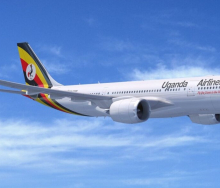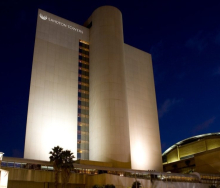BILLIONS of rands worth of key airport infrastructure projects in South Africa are on hold because of the COVID-19-related drop-off in travel demand and resulting financial losses at Airports Company South Africa.
All Acsa’s major capacity creation and efficiency improvement projects are being reassessed in terms of market demand and viability, confirms group executive: corporate affairs, Refentse Shinners. She says the current plan is for a capital expenditure programme that does not exceed R2,8bn in the financial years 2021 to 2023, R810m of this allocated to the 2021 financial year.
Key projects on hold and likely to be redefined are Cape Town International Airport’s new re-aligned runway and new domestic arrivals terminal (Terminal 2); and new remote apron stands, busing gates and an airside corridor upgrade at OR Tambo International Airport. After years of planning, the projects at CTIA were due to start this year. The runway realignment would have enabled the landing of larger and more aircraft.
Reporting to Parliament’s Transport Portfolio Committee in May, Acsa revealed that it was forced to slash its original Capex budget of R17,9bn for the period 2021 to 2023. The state-owned company said it needed R10bn in Government guarantees in the next five years, of which R3bn was needed for midterm expenditure in the next three years because of an expected 50% drop in air traffic volumes in 2020/21 and the long-term impact of COVID-19. Acsa expects the demand for air travel to be well below pre-COVID-19 levels for at least the next three to five years.
“It is expected that the current infrastructure will be adequate in the near term, but we will regularly revisit these decisions as time progresses and, if required, will recommence certain projects,” Refentse says. “Certain projects that were significantly advanced in terms of construction and where the business case is still valid, such as the Western Precinct office development at OR Tambo International, will continue, along with licence and safety-critical projects such as the fire response vehicles and security screening equipment. Some projects will progress on a reduced scope.
“Projects such as the Passenger Self Service and other IT enablers that support improved self-service and contactless activities are likely to progress whilst factoring in lower passenger volumes. We will also prioritise replacement and refurbishment projects to support the ongoing operations of the business,” she says.















